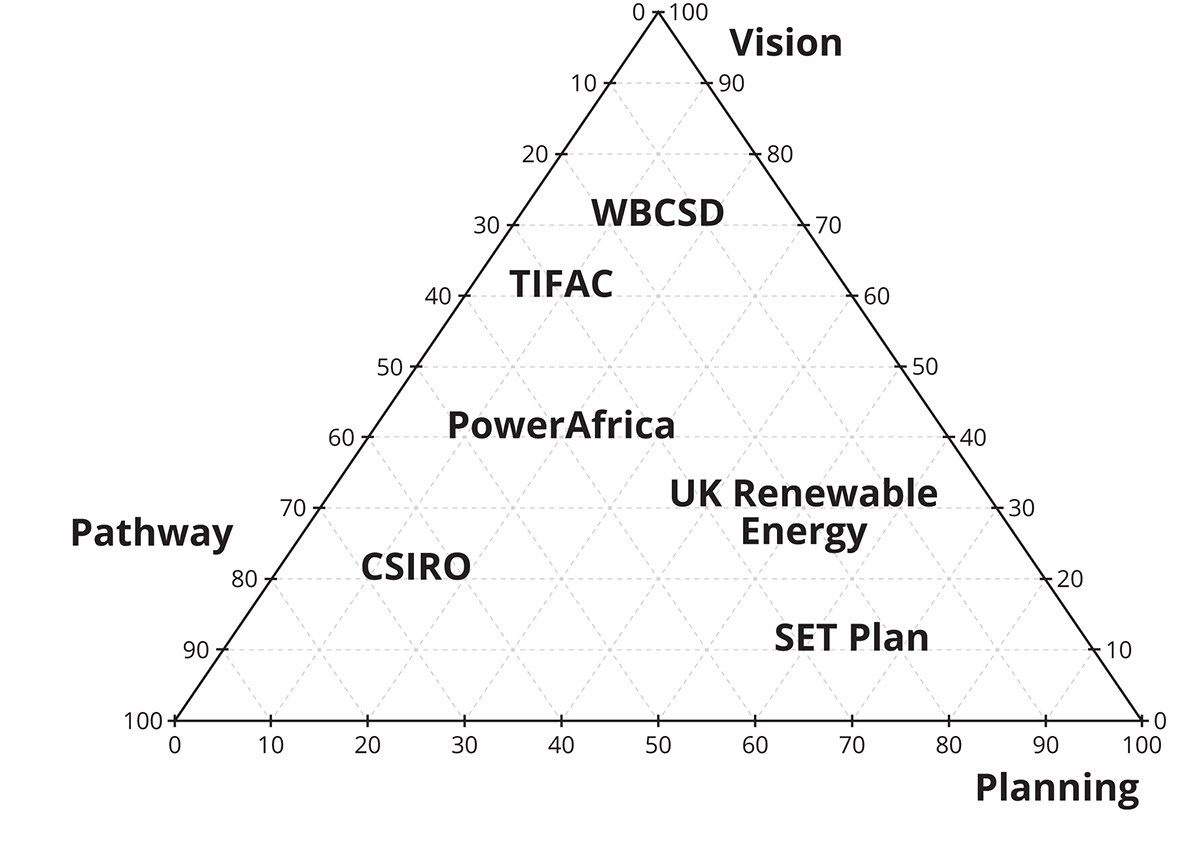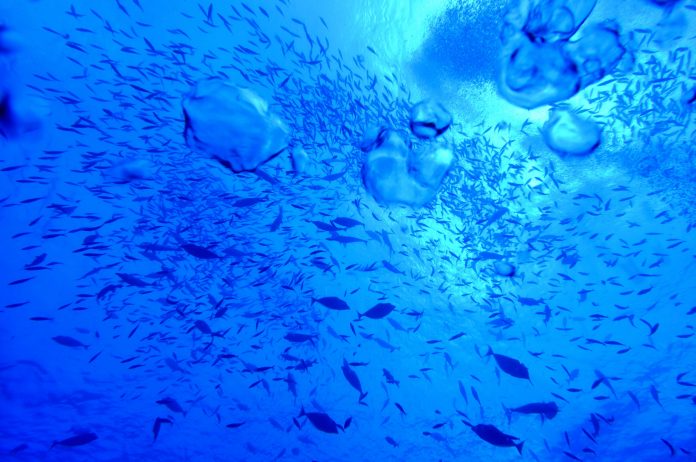The ocean’s pollution with plastics has stirred multiple promising responses across the globe: Are we on the verge of a new type of global governance? Prof Dr Raimund Bleischwitz explains how such governance may look and what is still missing
It is hard to catch up on the news about plastics in the ocean, and the many solutions that are underway. Here are just a few: San Diego, other cities and local councils are banning Styrofoam food and drink containers; the EU, Washington D.C. and others are banning plastic straws; Visitors will no longer be allowed to carry in single-use plastics into Peru’s 76 natural and cultural protected areas; and the list goes on. While some of this may look like regulation reloaded, the overall picture is quite forward-oriented.
More than 250 organisations have joined a “new plastics economy global commitment” with partnerships from H&M, Unilever, PepsiCo, L’Oreal, Nestle, Coca-Cola, a number of cities and political actors. It is a collaboration with the United Nations and is being led by the Ellen MacArthur Foundation. Other partners include the World-Wide Fund for Nature (WWF), the World Economic Forum (WEF), the Consumer Goods Forum, financial institutions and venture capital funds, and 40 academic institutions, including UCL. Targets include to:
• Eliminate problematic or unnecessary plastic packaging and move from single-use to reuse packaging models.
• Innovate to ensure 100% of plastic packaging can be easily and safely reused, recycled, or composted by 2025 (see e.g. the UCL Plastics Waste Innovation Hub and plastics heritage).
• Circulate the plastic produced, by significantly increasing the amounts of plastics reused or recycled and made into new packaging or products.
No foresight analysis predicted this surge of global activities; rather, it can be seen as unprecedented compared to the many years it took in the 1990s to set up international climate action based on science and political will. Some driving forces for phasing out plastic waste so vividly, however, are now easy to spot.
Discoveries of fish with a stomach full of plastic went viral via media, and voices like Sir David Attenborough urging for action after filming Blue Planet II in 2017 were heard across the globe. In addition, the political shockwave created through China’s crackdown on the import of plastic waste in early 2018 fuelled the tsunami wave of action. Thus, it’s been high pressure to act created through media and China as a global player triggering action.
Wicked challenges
Challenges like this are often called “super wicked”. Characterised by time running out, those causing the problem needed to become part of a solution, and authority on decision-making missing, they require new types of governance approaches with immediate action and a long-term perspective. UCL researchers David Coen and Tom Pelgram propose a third generation of global governance research able to transcend multilateral gridlocks and addressing transboundary problems.
We may borrow here the importance of scales (e.g. how does the plastic end up in the ocean?), the relevance of a comparative perspective (e.g. how do action and outcomes differ, if done in a quite different country?), and the focus on “what works” in unsettled times driven by a range of actors under a range of circumstances.
Yet, it will take one more ingredient to fully address the wicked challenge of too much plastic ending up in unhealthy conditions. It is necessary to go beyond symbolic action and address the long-term perspective. Good global governance needs a vision of what it seeks to achieve combined with an aspiration for broader public purposes. The vision of a plastic-free ocean is simple and compelling, it speaks to environmentalists, businesses able to contribute, and policymakers concerned with the clean-up.
Like in the iconic inaugural presidential address of John F. Kennedy, it poses a question to individual citizens – what YOU can do to achieve such a goal.
Visions and roadmaps
A vision is seen as elementary in transition research to raise aspirations and ambitions, it helps to align individual activities with collective action, and it inspires product designers and business developers. It is important to realise such visions can be formulated based on incomplete information about negative impacts that need to be avoided, e.g. what exactly is the impact on marine ecosystems and human health stemming from plastic in the ocean. In order to create new knowledge, such vision ought to be open and pluralistic, and it needs to be embedded in transition strategies.

Source: Miedzinski, McDowall, Fahnestock, Rataj (2018) How to design STI policy roadmaps to foster innovation for sustainable development? Inno4SD Policy Outlook: 10. WBCSD = World Business Council for Sustainable Development and their Vision 2050; TIFAC = 2035 Technology Vision (India); SET = European Strategic Energy Technology Plan; CSIRO = Low Emissions Technology Roadmap by the Commonwealth Scientific and Industrial Research Organisation.
The EU-funded project “Inno4SD” – the Innovation for Sustainable Development Network – has pulled together a library of evidence on what works in a comparative perspective, with excellent insights into policy and market development. One of the Inno4SD policy outlooks reviews a range of policy roadmaps in their attempts to drive innovation for sustainable development. A key is the blending of visions, pathways and planning (see figure) – and their interactions.
Compared to heroic statements of the past such as “land a man on the moon before the decade closes”, the wicked challenges of today require multiple experiments, social learning from success and mistakes, and core values of pluralism, openness, and inclusion. The Technology Facilitation Mechanism and their work on roadmaps are useful. The risk of new path dependencies and lock-ins can be counteracted by comprehensive assessments and by interactions between research and stakeholders.
On the verge of a new type of global governance
Are we on the verge of a new type of global governance? In light of increasing fragmentation, sweeping populism and phobia against “others” all around, our “yes, perhaps” might come as a surprise. Yet, the encouraging activities to combat plastic in the ocean and the pattern it reveals could well indicate a dawn for the next-generation of global governance, if emerging gaps are addressed by effective arrangements. The research from above suggests a strengthening along the following lines:
• The key account actors, together with Europe and China and international organisations, could turn pledges into a platform able to harmonise standards, remove barriers and trigger market development for innovative plastic products, as well as help blending finance mechanisms;
• Research and key stakeholders could establish roadmaps aligning visions on plastic-free ecosystems, transformative pathways for today’s throw-away business models and participatory planning processes with special features on regions and a knowledge hub on “lessons learned’”.
• Novel methods and mechanisms on impact assessment could address health, biosphere integrity and socio-economic impacts, both resulting from current trends as well as from new roadmaps.
Research has a role to play in enabling knowledge, innovation and transformation. Higher education can pioneer future pathways through international partnerships and an active role in continuous professional development – and shape the global governance architecture towards a plastic-free ocean and the Sustainable Development Goals.
Raimund Bleischwitz
Prof Dr, Director
University College London, Bartlett School
of Environment, Energy and Resources
(UCL BSEER)
inno4sd board member
Global Fellow
Smart Prosperity Institute
Tel: +44 (0)20 3108 9207
r.bleischwitz@ucl.ac.uk
https://www.ucl.ac.uk/bartlett/sustainable/people/prof-raimund-bleischwitz
www.twitter.com/BleischwitzR
This publication has benefitted from funding from the European Union’s Horizon 2020 Research and Innovation Programme under grant agreement No. 641974. (Green.eu./Inno4SD.net)
*Please note: This is a commercial profile











